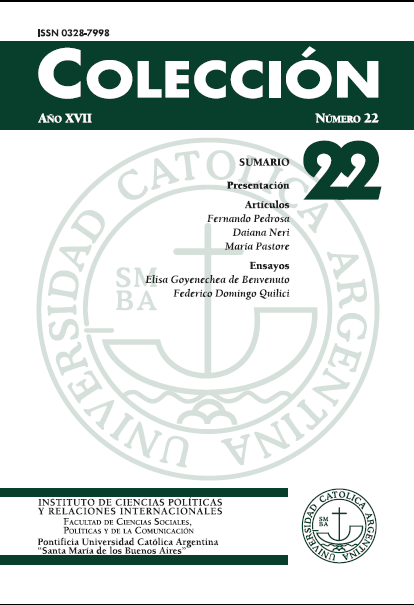Hannah Arendt and Walter Benjamin: mass, crows, mob
Keywords:
Mass, Crowd, Mob, Imperialism, TotalitarianismAbstract
Hannah Arendt and Walter Benjamin review the associative phenomena of mass, crowd and mob. Both subtract those groups from the political sphere and place them in the social field. In The origins of Totalitarianism, Arendt explores the notion of mob in the context of the imperialist phenomenon. She associates mob character with the character of the bourgeois class and positions both groups in the emergence of tribal nationalism, both precedents of totalitarianism. Civic apathy, cynicism and the collapse of bourgeois manners are insufficient to explain the phenomenon of totalitarianism. The mass man has even lost self-interest and a taste for non-political associations. Walter Benjamin ponders the phenomena of literary and bohemian crowd through the poetry of Baudelaire and the stories of E. A. Poe. The first group includes professional conspirators, whose isolation and resentment, ties these to the members of the mob. The lack of ownership and the absence of links lead to activism, not an action plan. In the context of its reflection on the phenomenon of the crowd, Benjaminexplores the impact of modern living conditions in the automated behavior of individuals. The reflex behaviors, automated responses and the clichés are alsoArendt notes in the “normal” man and diluted in the mass, as evidenced by the behavior of Eichmann in Jerusalem during the process.
Downloads
Download data is not yet available.
Downloads
Published
2017-11-24
How to Cite
Goyenechea de Benvenuto, E. (2017). Hannah Arendt and Walter Benjamin: mass, crows, mob. Colección, (22), 115–146. Retrieved from https://e-revistas.uca.edu.ar/index.php/COLEC/article/view/861
Issue
Section
Lecciones y Ensayos
License










 Colección
Colección